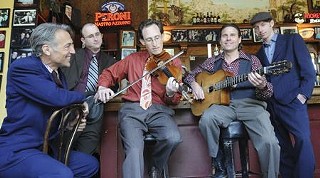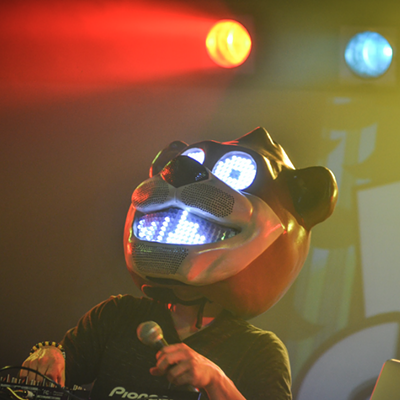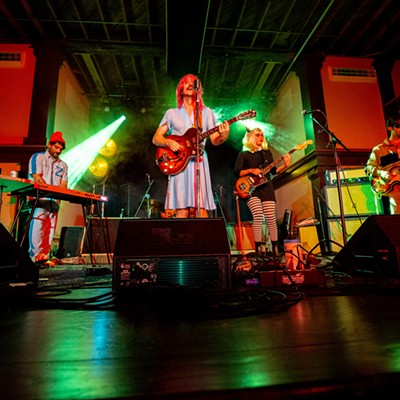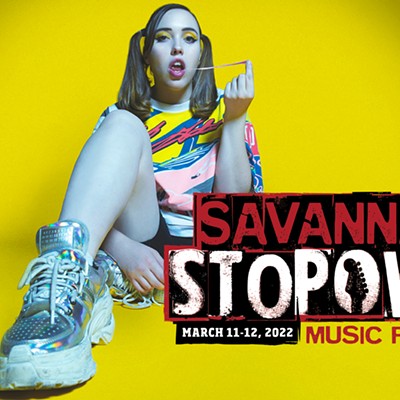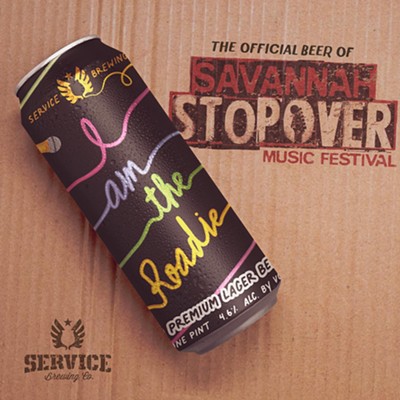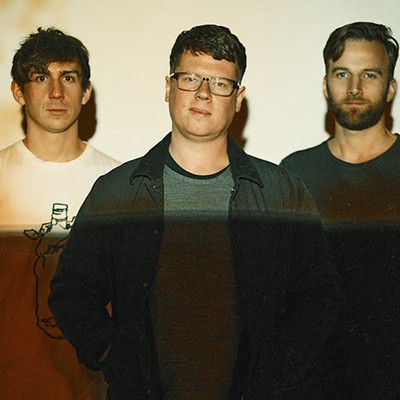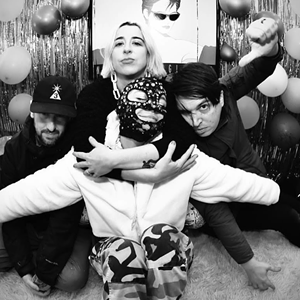A lot of guitar players talk about Django Reinhardt (1910–1953) as a major influence. The Belgian–born Reinhardt was a gypsy musician — he combined fast–moving swing with distinctly European forms of percussive rhythms, quicksilver chordal patterns and, most importantly, a rippling violin as a duet partner for his guitar.
Along with violinist Stephane Grappelli, Reinhardt was the centerpiece of the Quintette du Hot Club de France, the talk of Paris in the 1930s.
Guitarist Paul Mehling, founder and frontman of the Hot Club of San Francisco, is one of the leading contemporary musicians playing “jazz manouche,” or gypsy jazz.
Mehling and his band will perform Thursday at the Lucas Theatre — with one set of historical and modern gypsy jazz tunes, and another as accompaniment to four antique silent films.
As a child in Northern California, Mehling absorbed all kinds of music via his father’s extensive record collection. “Growing up in the age of the Beatles, everything was guitar, guitar, guitar,” he recalls. “But I gravitated towards swing — I listened to Benny Goodman and all that stuff — when I was a teenager.”
At some point, he threw on an old Hot Club de France record. He liked the way Reinhardt and company looked – “sharp, sophisticated and mysterious” – but the sound of the guitar – decidedly not Beatle–like – made him sit up.
“There’s something about the way the gypsies play the guitar that just gets me,” Mehling says. “There was something really different around the guitar the way the gypsies played it. It’s like you’ve got a vibrato bar in your hand — the vibrato is crazy, the speed is crazy. It’s expressive. It’s got all the rock ‘n’ roll elements, but it’s not all just boom, boom, boom, like rock ‘n’ roll can get.”
He responded to the instrument’s “gradations of color — there’s romance, and mystery, yet there’s still hotness and passion and all of that stuff. It’s like a little bit of all the food groups, musically speaking.”
In fact, gypsy jazz guitar has the seamless flow of violin music.
“A lot of the gypsies played violin first,” explains Mehling. “I studied a lot of violin at first, because I didn’t know what I wanted to be when I grew up. The things you learn to do on the violin, if you apply them to the guitar, it actually helps you play in this style. There’s a lot of violin technique played on the guitar in this style.”
The Hot Club of San Francisco includes violinist extraordinaire Evan Price, who has performed with not only Stephane Grappelli (the jazz master died in 1997) but with artists as diverse as rocker Jimmy Page, bluegrass fiddlers Johnny Gimble and Vassar Clements, and comedian Stephen Wright.
In the 1980s, when he was in his 20s, Mehling traveled to Paris, in an attempt to getto the heart of gypsy jazz. “You can only learn so much from listening to records unless you’re a really smart person,” he says. “And I’m only so smart.”
Every day, he’d play classical pieces on his violin in the city’s Metro subway stations, making enough in tip money to keep him in groceries.
“In the evenings I’d go looking for the gypsies, and I finally found some. I happened to have my violin with me, and I was watching these guys play. They were looking at me with the violin case. Finally, one guy goes ‘You play that?’ I said ‘Mmm, a little bit.’ And he asked me if I wanted to play. I said ‘Actually, I’d rather listen to you guys.’
“Being a guitar player who’s invited people to sit in with me, I always appreciate when people err on the side of discretion. Some people aren’t smart enough to know that they suck. They always want to sit in, and they’re really good–intentioned ...
“So these guys immediately liked me because I didn’t just whip it out and step on it. Eventually, though, they started playing ‘Sweet Georgia Brown,’ and I knew that one in my sleep, so I got my violin out and started playing.
“I surprised them, and surprised myself, and for the next 10 days I’d play every day with these guys, sometimes four and five hours. We’d count up the tip money and I’d go ‘You don’t have to pay me — I’m just a dumbass American.’ The guitarist, Serge Krief, was French/Arabic, and in his bad French accent he’d be like ‘No! You are not my brother if you don’t accept the money!’”
When his moolah ran out, Mehling returned to America, with a stash of cassette tapes he’d made of the streetcorner gypsy jazz band. He studied Krief’s solos and improvisational flourishes, note for note and chord for chord, until he broke the unwritten code of the music.
“This was the ‘80s, when there was no Internet, no YouTube,” Mehling laughs. “Nowadays guys are learning how to play this style by watching real gypsies who have been filmed. And you can get Django’s music through Amazon any time you want.”
From 1985 to 1990, Mehling was the guitarist in Dan Hicks and the Hot Licks, a California band known for its high–octane blend of gypsy jazz, swing and rock ‘n’ roll.
The Hot Club of San Francisco is 20 years old now, with 10 albums in the catalog, including many tracks written by the band members themselves.
It’s not just the old stuff.
“We’re trying to bring the era forward,” Mehling says. “A lot of Americans think they don’t like jazz, because jazz has morphed into this thing that’s kind of a very intellectual exercise, mostly jazz guys playing for other jazz guys. And they’re not necessarily playing for audiences any more. So a lot of American audiences go ‘Screw this.’
“We’re trying to make swing music contemporary, so that it’s not like putting on a scratchy old record, or going to a dusty old museum or something. We’re trying to show that living people can play this music, and that it can be exciting, and vital, and have a place in your life. You don’t have to think you’re a geek if you like swing music.”
The four films the band will accompany Thursday include “two comedies, one scary film and one film that’s just beyond category.
“We call it ‘Silent Surrealism’ because the films are mind–expanding; they’re not from the French Surrealist school.”
Likewise, the members of the Hot Club of San Francisco are very aware of who they are, and what they’re doing.
“We’re not gypsies, it’s not the 1930s,” Mehling says. “And this certainly isn’t Paris here in America, anywhere.
“But for people who know all that background, you can kinda evoke that for them. And people who don’t know anything about the genre, they can just hear it and go ‘Huh! Never heard that before. It’s kinda cool.’”
Hot Club of San Francisco: ‘Silent Surrealism’
Where: Lucas Theatre, 32 Abercorn St.
When: 8 p.m. Thursday, Nov. 19
Tickets: $24
Phone: (912) 525–5050
Online: www.lucastheatre.com
Artist’s Web site: www.hcsf.com

